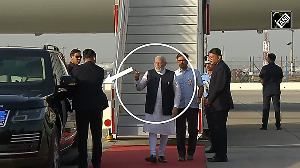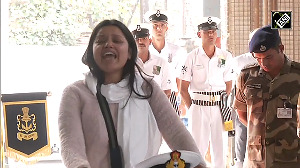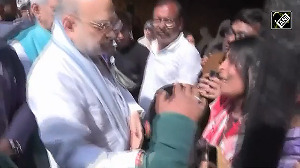This policy tugs at your heart-strings to prepare a better future for your life's biggest investment - your child.
How the policy works. Young Star is a unit-linked insurance plan, which means that the returns are market linked and not assured. The policy aims to provide financial security to your child by insuring your life and unlike the average Ulips, the benefits go to the beneficiary you name - your child, wife or any other blood relation. You can choose between a 'death' or a 'death and critical illness' benefit.
Under the second, the sum assured is paid when the policyholder is diagnosed with a critical illness, even if he survives. The policy continues even after death or onset of critical illness (when the sum assured will be paid), and at the end of the policy period, the beneficiary gets a sum of money equal to the fund value, which depends on the route you choose - debt, balanced or equity.
Costs. The policy continues even after death because of the higher mortality charges (the pure cost of a life cover) in the initial years. These charges (the sum assured and the present value of the remaining premiums) are high because you pay today for the future.
For example, if the sum assured is Rs 2.4 lakh, annual premium Rs 24,000, and you had paid only two years of premiums for a 20-year policy, the mortality charges will be on Rs 2.4 lakh plus present value of the remaining premiums (Rs 432,000), which is Rs 1,041 (see: What the Returns Breakdown Says).
In a typical Ulip, the charges depend on the sum assured at risk. In Young Star your fund value is not leveraged for complementing the sum assured, net mortality charges throughout the policy term will be the same. You get higher cost, but also better cover.
The policy has one of the lowest administration charges (Rs 20/month) and fund management charges (0.80 per cent) in this genre of policies, which are Rs 60 per month and 0.75-1.50 per cent for ICICI's Smart Kid New Unit Linked Plan.
Low fund management charges are good because this is a recurring cost that eats into your growing corpus. Over a 20-year period, a difference of just 0.7 per cent in fund management charges means a difference of Rs 169,000 in your returns, assuming a growth of 10 per cent per annum for annual premium of Rs 50,000.
Returns. After costs, the returns that the funds earn become the most important criterion for picking a product. This insurer uses the expertise of its sister company HDFC Mutual Fund (one of the most respected Indian fund houses) to advice its Chief Investment Officer Saurabh Nanavati.
Being an investment-linked policy, fund management strategy plays an important role. HDFC follows a top-down approach in macro view and bottom-up approach in picking the stocks. They invest at least 1.5 per cent of the funds in each stock the research team suggests, which has a portfolio of 40 stocks. Container Corporation, Hindustan Zinc and Divis Laboratories are some of the successful stock picks they have done well in the past.
The returns on its growth fund seems moderately good, with a benchmark plus 7 per cent return - not spectacular, but reasonable.







 © 2025
© 2025